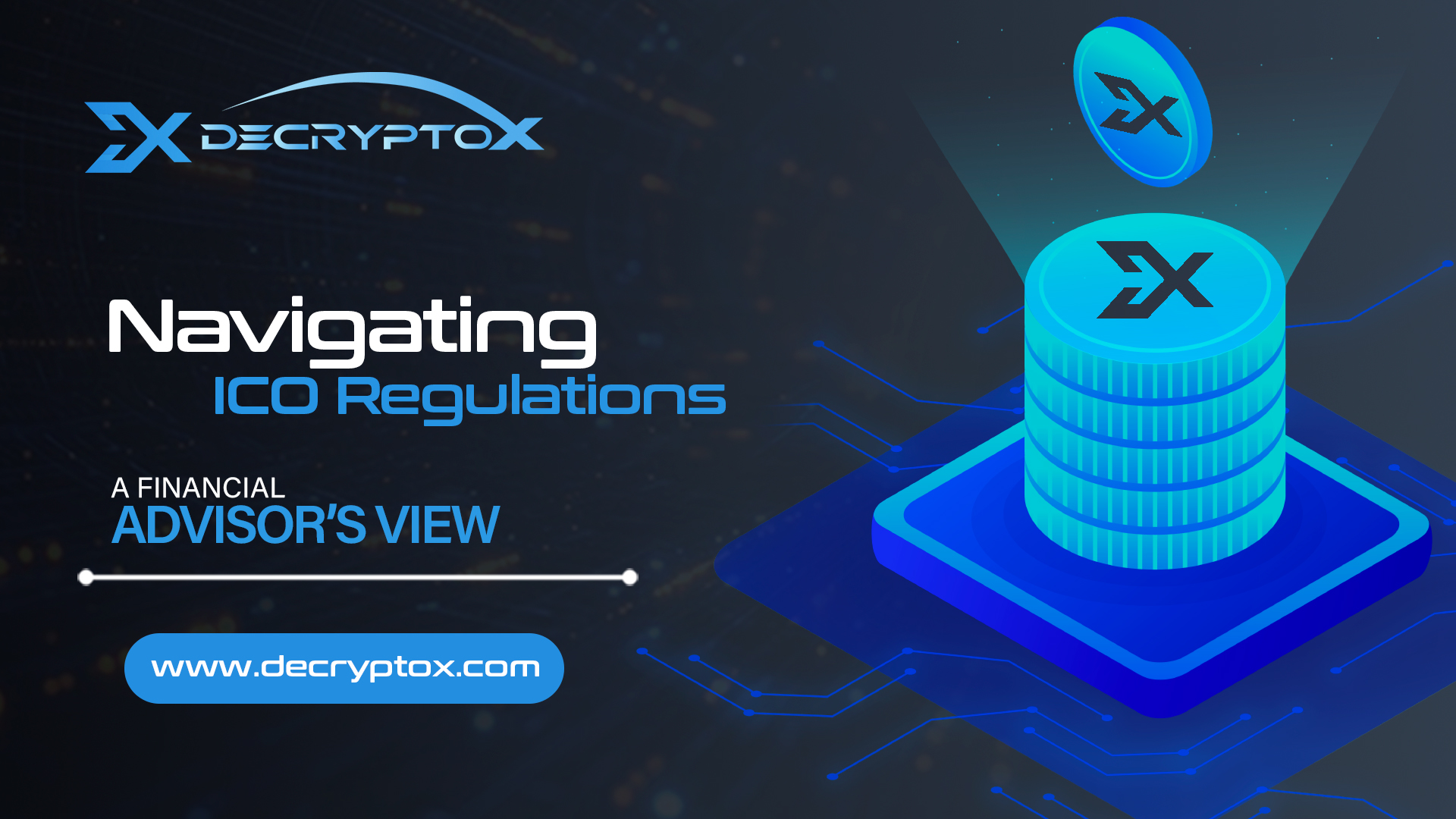
ICOs exist as promising opportunities while presenting investors alongside startups with a complicated regulatory landscape which needs careful navigation. ICO fundraising provides startups with innovative funding options although their operation remains subject to a fast-changing legal framework. Investors gain essential support from financial advisors who guide risk evaluations and guide compliance efforts and help them make well-informed choices. A financial advisor needs to understand ICO regulations in detail to help investors manage the dynamic regulatory challenges.
The blockchain startup funding method known as Initial Coin Offering (ICO) allows digital token distribution to investors who pay Bitcoin or Ethereum as payment. ICO investment differs from conventional IPOs since the tokens typically grant users product or service access rather than granting ownership assets. ICO projects have brought groundbreaking innovations yet they remain vulnerable to scams while regulators take action against them and their market values remain unpredictable.
Understanding regulatory frameworks for ICOs becomes essential since these rules differ strongly between various regions of the world for investors as well as issuers to satisfy regional compliance requirements.
United States : The Securities and Exchange Commission of the United States considers many ICOs as securities which demand registration and disclosure compliance under the applicable securities laws.
European Union : ICOs operating inside the European Union area either comply with Markets in Financial Instruments Directive (MiFID II) or AML rules based on the ICO structure.
Asia : ICO regulations vary in Asia because Japan created specific rules but China introduced complete bans against digital token offerings.
Other Regions : Certain governing bodies have put in place “regulatory sandboxes” which give blockchain initiatives permission to test and innovate inside secure testing laboratories.
The assessment of ICO legitimacy depends heavily on knowledge regarding its origin along with its corresponding legal classification.
Financial advisors assess ICOs through an organized system which combines risk evaluation together with thorough investigative procedures.
Investment Strategies for ICOs
Investors seeking maximum reward through ICOs must implement organized investment methods.
The Future of ICO Regulations
Increased regulatory oversight positions the ICO market toward transparency and compliance as its main developmental direction. Regulated fundraising models like STOs and IEOs represent the market’s current direction away from unregulated ICO projects. Fast-evolving ICO regulations will require the fundamental involvement of financial advisors who help investors make smart choices regarding risks and compliance requirements.
For investors, understanding the regulatory landscape is just as important as evaluating a project’s potential. ICOs can offer exciting opportunities, but they also come with risks that require careful analysis. Financial advisors bring valuable expertise in assessing compliance, security, and investment viability, helping clients make informed decisions in the Web3 era.
By staying updated on regulations and adopting a strategic approach, both investors and startups can thrive in the evolving world of blockchain-based fundraising.
Disclaimer: Crypto investments are high-risk and not for everyone. Do your research and seek advice before investing. DecryptoX complies with laws but operates in evolving DeFi regulations.